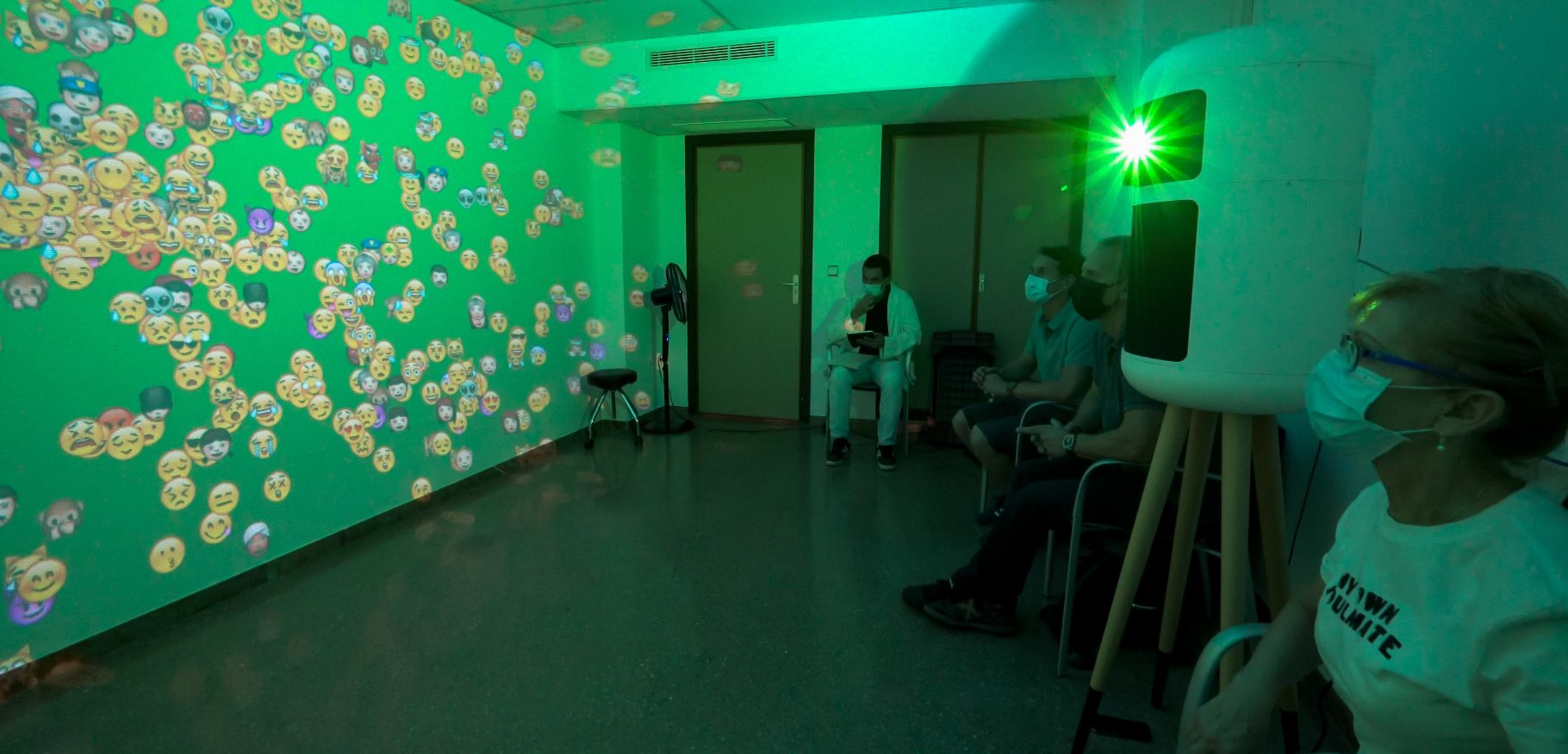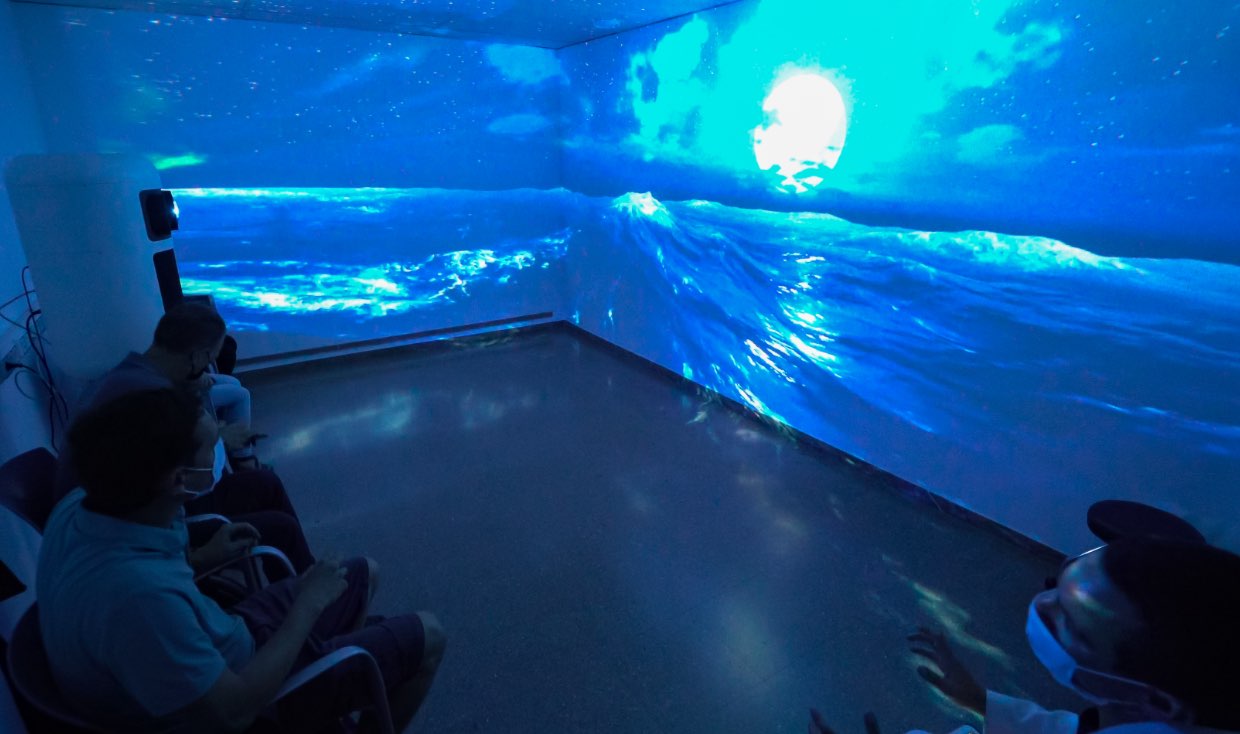Long-Covid symptoms:
Impact and implications
Patients who suffer long-COVID symptoms often experience psychological symptoms, cognitive changes as well as emotional problems. These symptoms can persist for months or even years after the infection. Some of the cognitive and emotional problems associated with long COVID include brain fog, fatigue, anxiety and depression, mood swings, reduced processing speed or executive function impairment. It is estimated that between 10 and 15% of COVID-19 survivors are affected by long-COVID. Some studies indicate that almost 2 million Spaniards suffer from long-COVID and 600.000 have suffered from it for more than 3 years. This situation impacts in many areas such as employment, where only 15% of those affected work under normal conditions.

Consorci Sanitari de Terrassa
The Consorci Sanitari de Terrassa is a health organization that has all levels of care (primary, specialized, social health and mental health) and offers health services to a population of more than 200,000 inhabitants at the Vallès Occidental region, in Spain.

Consorci Sanitari de Terrassa
The Consorci Sanitari de Terrassa is a health organization that has all levels of care (primary, specialized, social health and mental health) and offers health services to a population of more than 200,000 inhabitants at the Vallès Occidental region, in Spain.
New form of intervention
Multimodal programs that combine cognitive training, physical activity and emotional tasks, such as mindfulness-based interventions (MBIs), are considered a suitable alternative for improving long-COVID treatments. The neuropsychology research group from the Consorci Sanitari de Terrassa, led by Dr. Maite Garolera, considered that immersive virtual reality (IVR) is a promising technology to enhance traditional cognitive training, physical activity and mindfulness. They developed a scientific research project to evaluate the impact of such intervention in a representative group of patients from the hospital.

Organization of the sessions
The intervention consists of group sessions of 60 minutes each, 2 times per week during 8 weeks, in groups of 5 adult patients led by a neuropsychologist from the hospital. The results have been compared with a control group that carries out a traditional intervention.

Organization of the sessions
The intervention consists of group sessions of 60 minutes each, 2 times per week during 8 weeks, in groups of 5 adult patients led by a neuropsychologist from the hospital. The results have been compared with a control group that carries out a traditional intervention.
Main benefits
The evaluation of the study included different aspects, such as global cognition, attention, processing speed, episodic verbal memory, subjective memory, and also symptoms of anxiety, depression, and fatigue among others. The experimental group significantly improved their overall cognition, processing speed, and depressive symptoms, while the control group did not experience improvements in any of these aspects. The satisfaction expressed by patients in the experimental group over the course of the sessions is also noteworthy. Furthermore, the perception of improvement was consistently high throughout the entire intervention.

Main benefits
The evaluation of the study included different aspects, such as global cognition, attention, processing speed, episodic verbal memory, subjective memory, and also symptoms of anxiety, depression, and fatigue among others. The experimental group significantly improved their overall cognition, processing speed, and depressive symptoms, while the control group did not experience improvements in any of these aspects. The satisfaction expressed by patients in the experimental group over the course of the sessions is also noteworthy. Furthermore, the perception of improvement was consistently high throughout the entire intervention.
Conclusions
Even taking into account the limitations of this initial research project, the study’s results demonstrated that the use of this innovative technology in such interventions increases patient participation and motivation while enhancing the individual benefits of cognitive training, physical exercise, and mindfulness.

Conclusions
Even taking into account the limitations of this initial research project, the study’s results demonstrated that the use of this innovative technology in such interventions increases patient participation and motivation while enhancing the individual benefits of cognitive training, physical exercise, and mindfulness.
Next Steps
The Consorci Sanitari de Terrassa have incorporated this intervention into its portfolio of healthcare services as a permanent offering for these patients. Additionally, some of the areas with the most potential for improvement have been strengthened through the co-creation of new therapeutic content developed by Broomx, with new and more specific programs. As a result, dozens of individuals experiencing long COVID symptoms have benefited from this intervention, significantly improving their quality of life. Furthermore, the same research group has expanded its focus by adapting the intervention to other profiles such as older adults with mild cognitive impairment, fibromyalgia patients, and oncology patients. A new research project called ONCOBRAIN is underway with oncology patients, in which the Fundació Nous Cims has also been involved and the results will be published soon.

These projects have led to the development of a significant number of specific therapeutic programs for neurorehabilitation and cognitive rehabilitation, which are available within the Broomx platform and are benefiting hundreds of patients worldwide!
